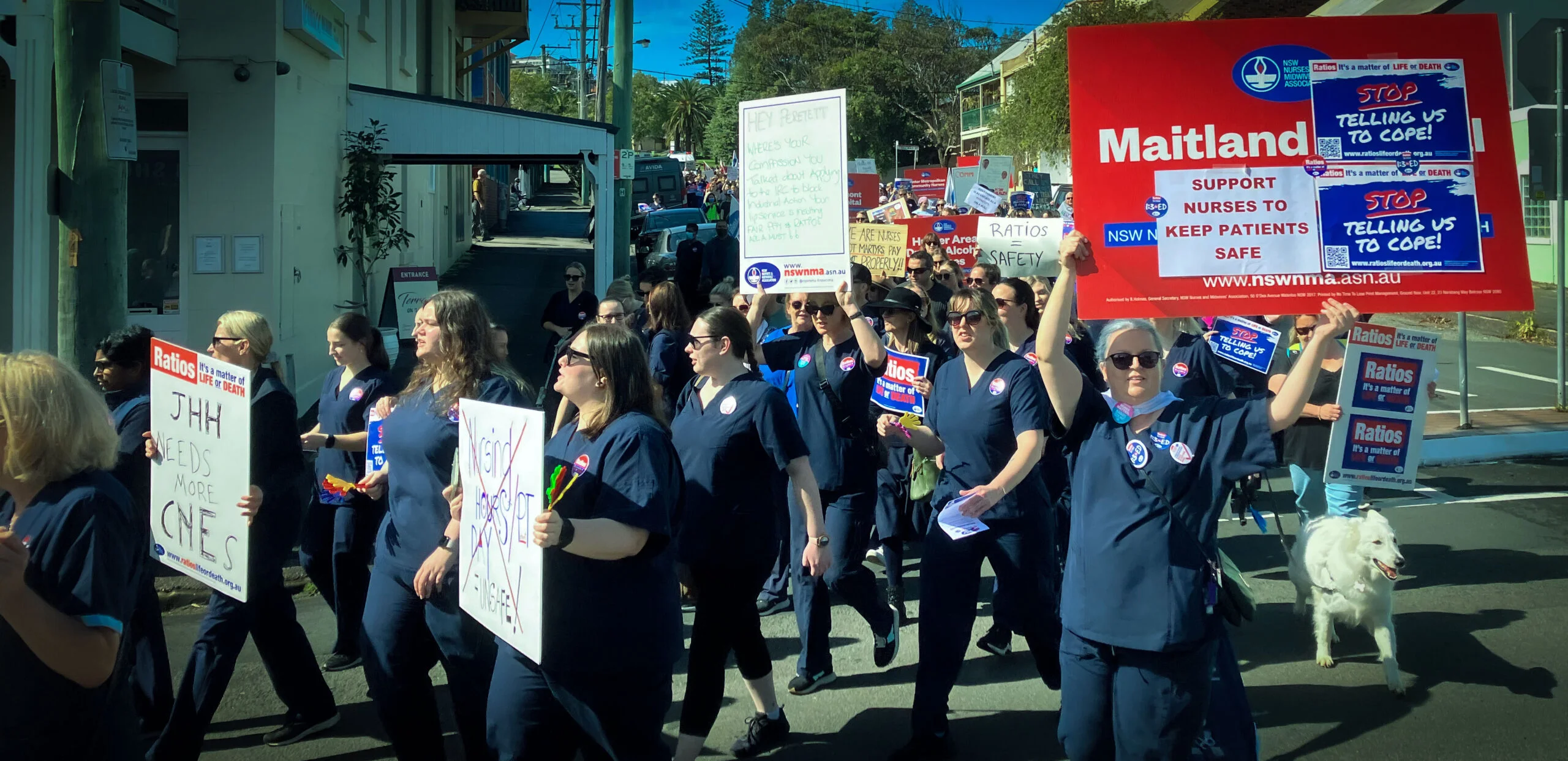Primary Health Care Sector
Primary Health Care – we have your back
The NSWNMA represents almost 6,000 nurses and midwives from the primary health care sector – with members employed in various workplaces such as medical centres and GP services, telehealth, community care, IVF clinics, and more. The work of primary health care professionals plays an integral role in maintaining the health and well-being of our communities. Recruitment and retention is key to ensuring the sustainability of the sector and the daily functioning of our health care system.
The Association has been fighting alongside members for improvements to your pay and conditions to transform the experience for primary care nurses and midwives.
A new Work Value Case is seeking a 30% pay rise for all employed under the Nurses Award 2020 – lifting the benchmark pay for all nurses and midwives.
We have also been advocating for a broadened scope of responsibilities as part of the federal government’s Scope of Practice review, and more recently won the removal of collaborative arrangements as part of the Health Legislation Amendment Bill 2024 to better recognise the role of nurse practitioners and midwives in the delivery of health services.
This is just the beginning of our campaign for improvements in this sector. If you want to stand with us, get in touch! Remember, members are our union. That’s why, when we fight collectively, we can achieve real change.
Key reforms and campaigns
Your union is part of a national campaign to improve conditions for nurses and midwives in Australia. To demand change, the Australian Nursing and Midwifery Federation (ANMF) filed a landmark application to the Fair Work Commission to increase award wages by up to 35 per cent for nurses, midwives, assistants in nursing and assistants in midwifery.
This case seeks to vary the Nurses Award to bring the appropriate recognition for the work members do. Improving the pay for those under the Nurses Award will lift the benchmark for many members working in this sector.
This process will take time, but we believe it is an essential fight after years of employers undervaluing nurses and midwives.
In August 2023, the federal government announced workforce reviews in nursing and midwifery, and scope of practice reviews for health care workers. This work explores approaches to workforce planning and examines ways to enable health and social care practitioners to work to the full extent of their skills and training. The goal is to improve access to health care and boost equity across all communities irrespective of their geography.
The NSWNMA and ANMF have been actively involved in supporting this process as it will ensure all health professionals are fully utilised, and the public will receive the best care possible.
In November 2024, the federal government released its final report, Unleashing the Potential of our Health Workforce: Scope of Practice Review. The report proposes essential reforms that would empower highly trained nurses, midwives, and allied health professionals to fully utilise their skills, knowledge, and experience.
We strongly support the recommendations outlined in this report. Although the full details of the report continue to be reviewed, the ANMF believe removing the barriers and inconsistencies that have long hindered nurses and midwives will allow this workforce to operate at the top of their skill set. These recommendations are an essential first step toward creating a more accessible and equitable healthcare system, especially in regional, remote and Indigenous communities, where healthcare shortages are most acute.
The NSWNMA and ANMF continue to work with the relevant federal ministers to support the ongoing reform of our health system.
The ANMF has long been calling for better support and recognition of the expertise of nurse practitioners and endorsed midwives.
In a historic step forward, the ANMF has gained momentum in this fight with the recent passing of the Health Legislation Amendment (Removal of Requirement for Collaborative Arrangement) Bill 2024 in Parliament. The Legislation finally removes outdated barriers that have prevented nurse practitioners and endorsed midwives from prescribing medicines under the PBS and providing services under Medicare, because of the requirement for a ‘collaborative arrangement’ with a medical practitioner.
This significant workforce reform has given highly trained nurse practitioners and midwives the scope to provide people with safe, quality care which has long been underutilised due to restrictive legislation.








